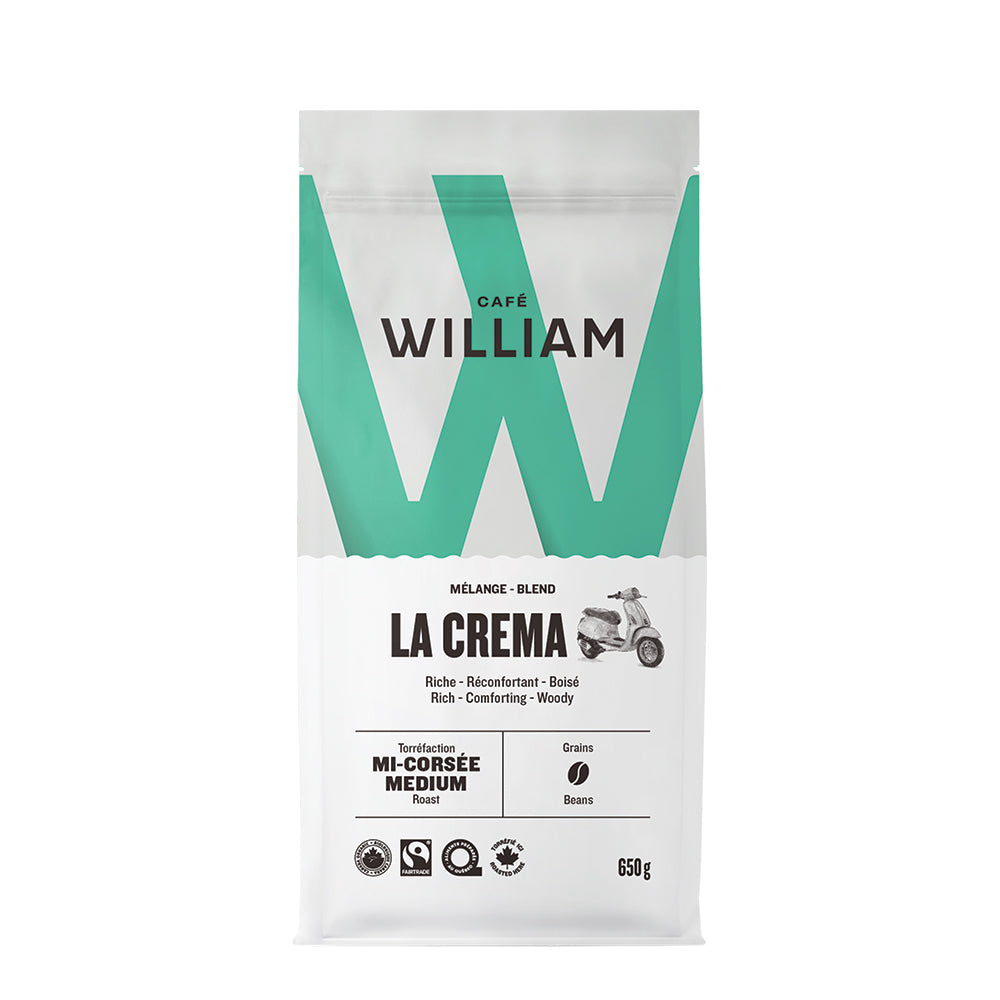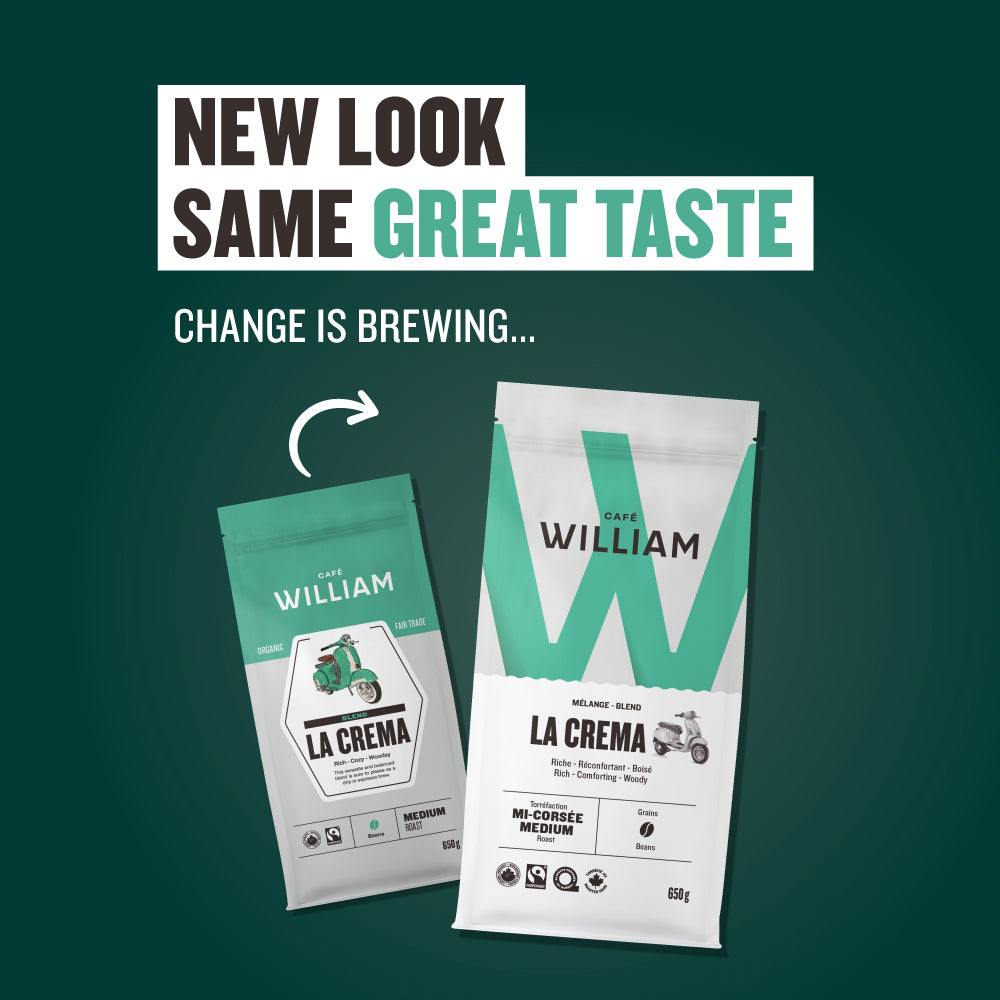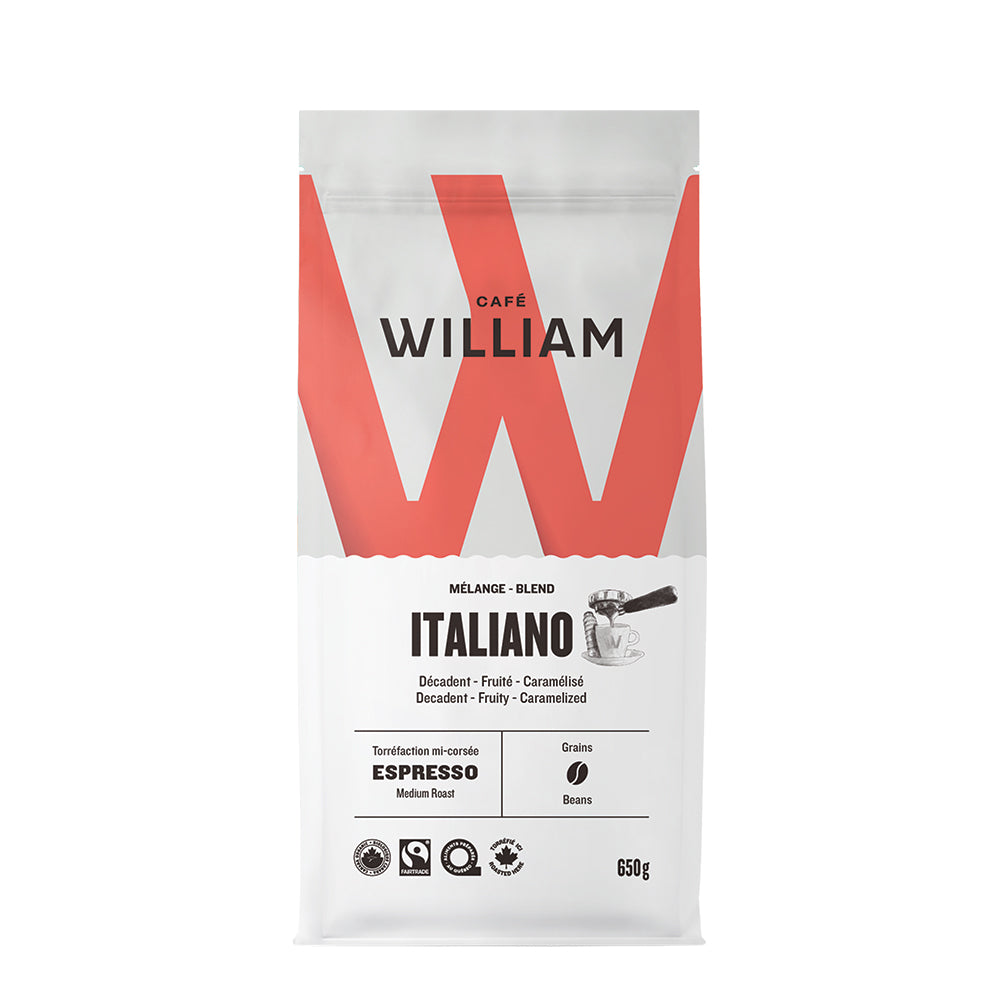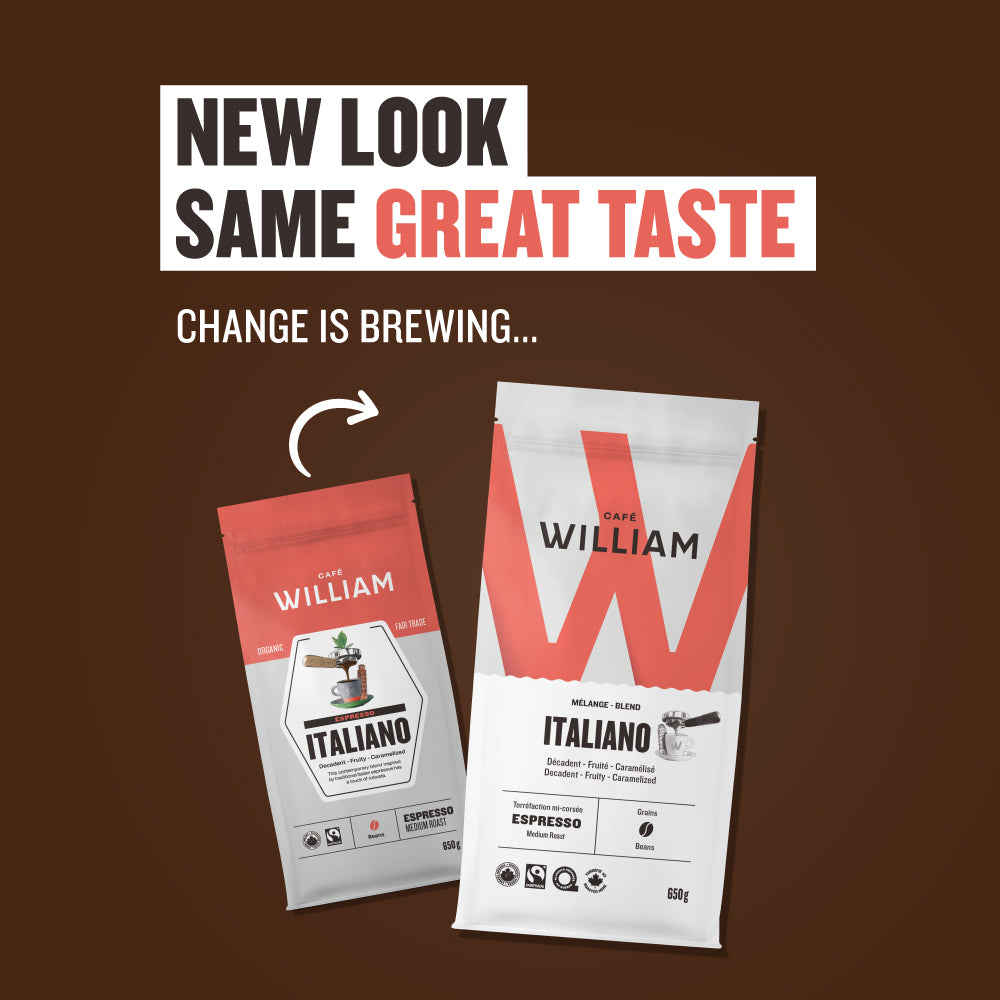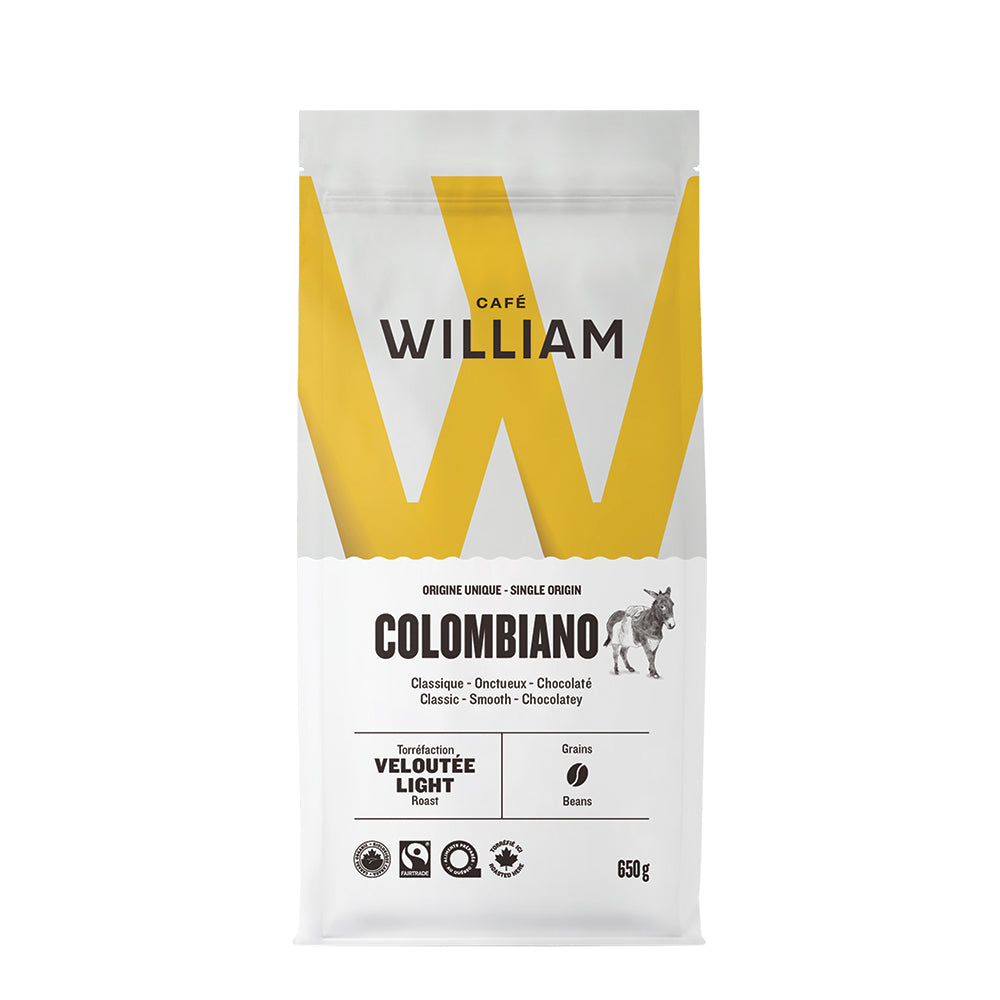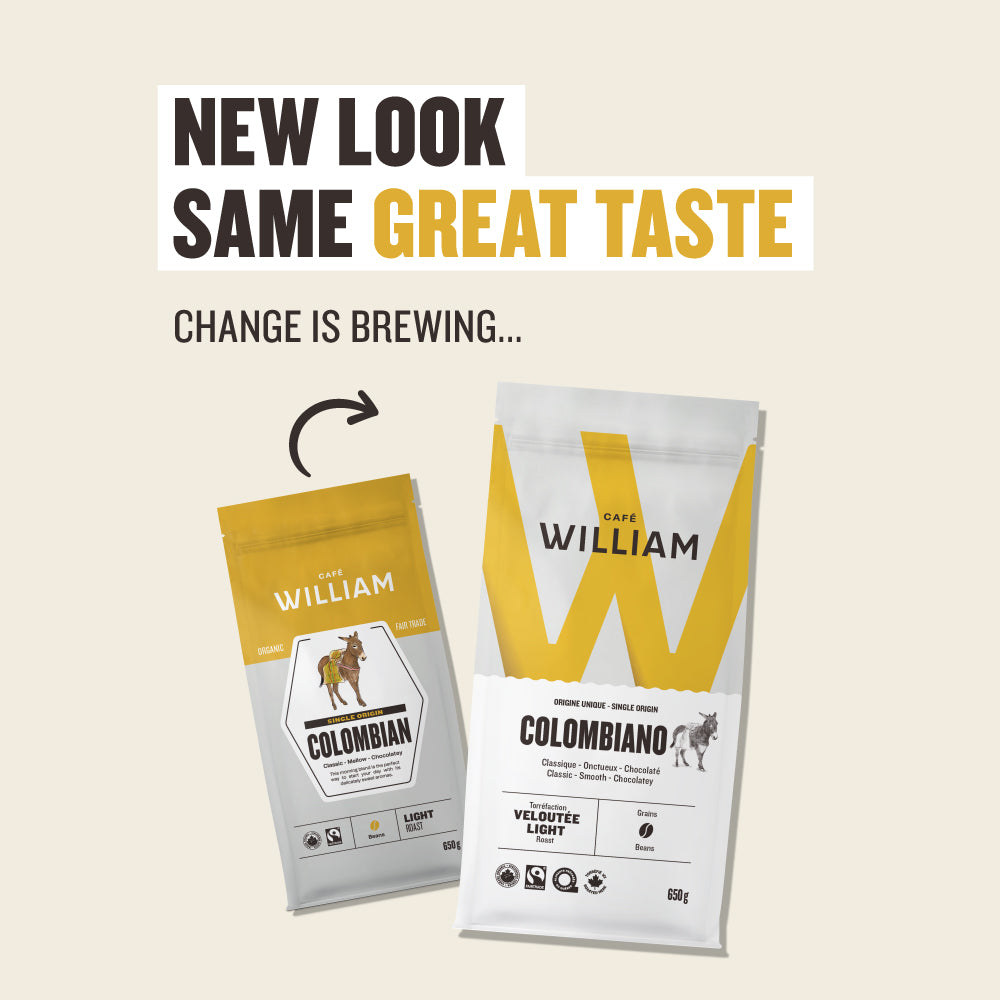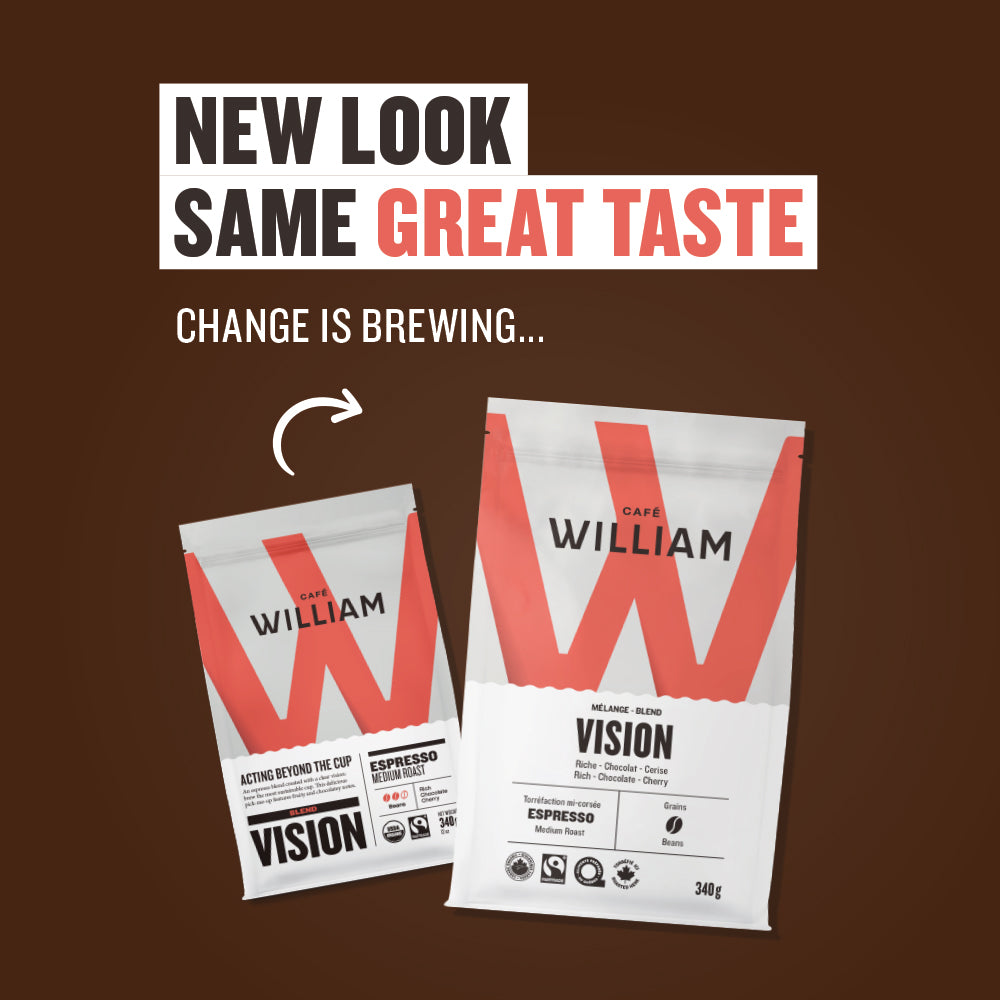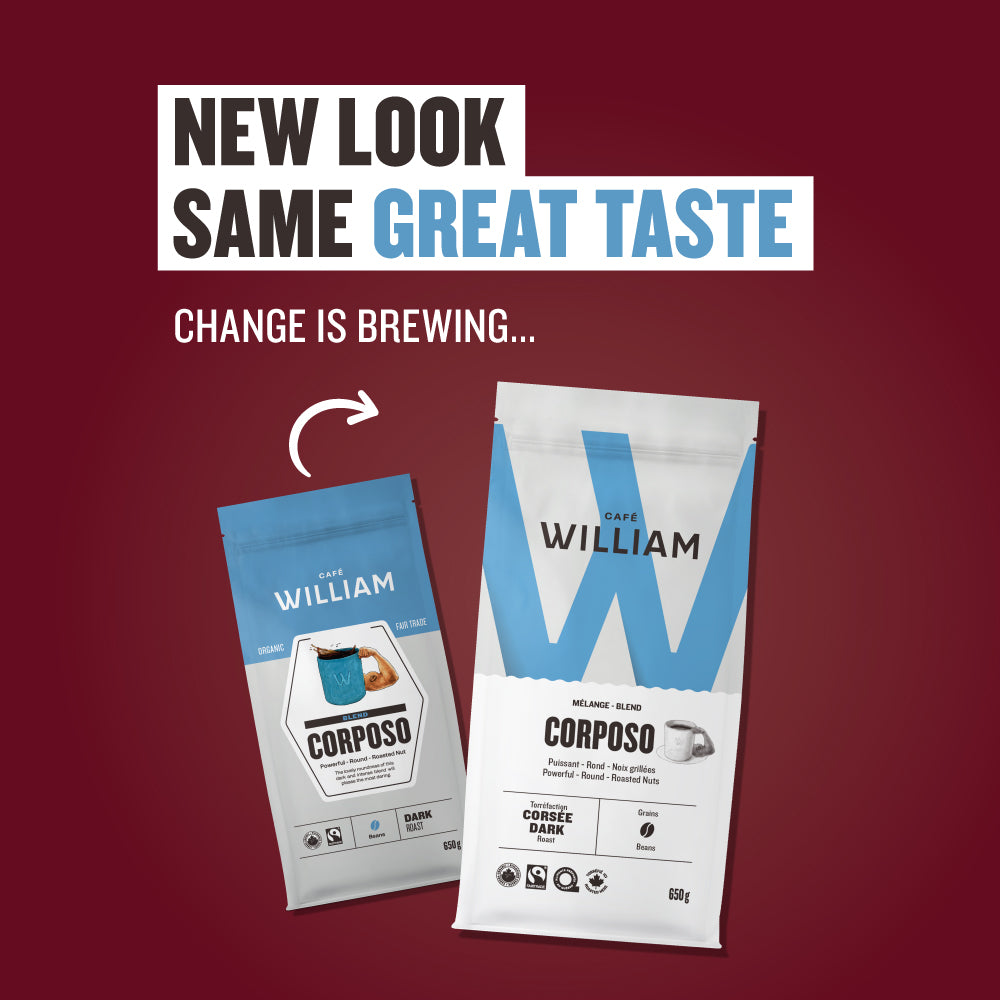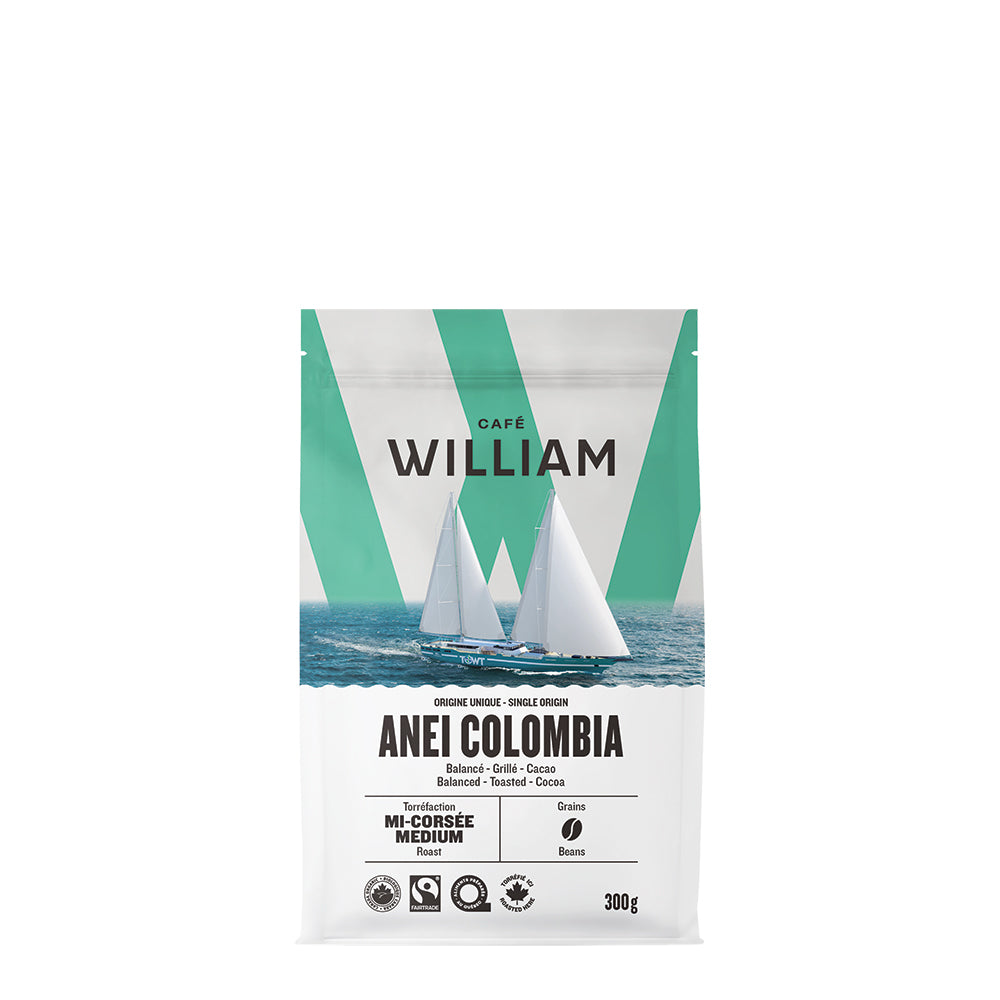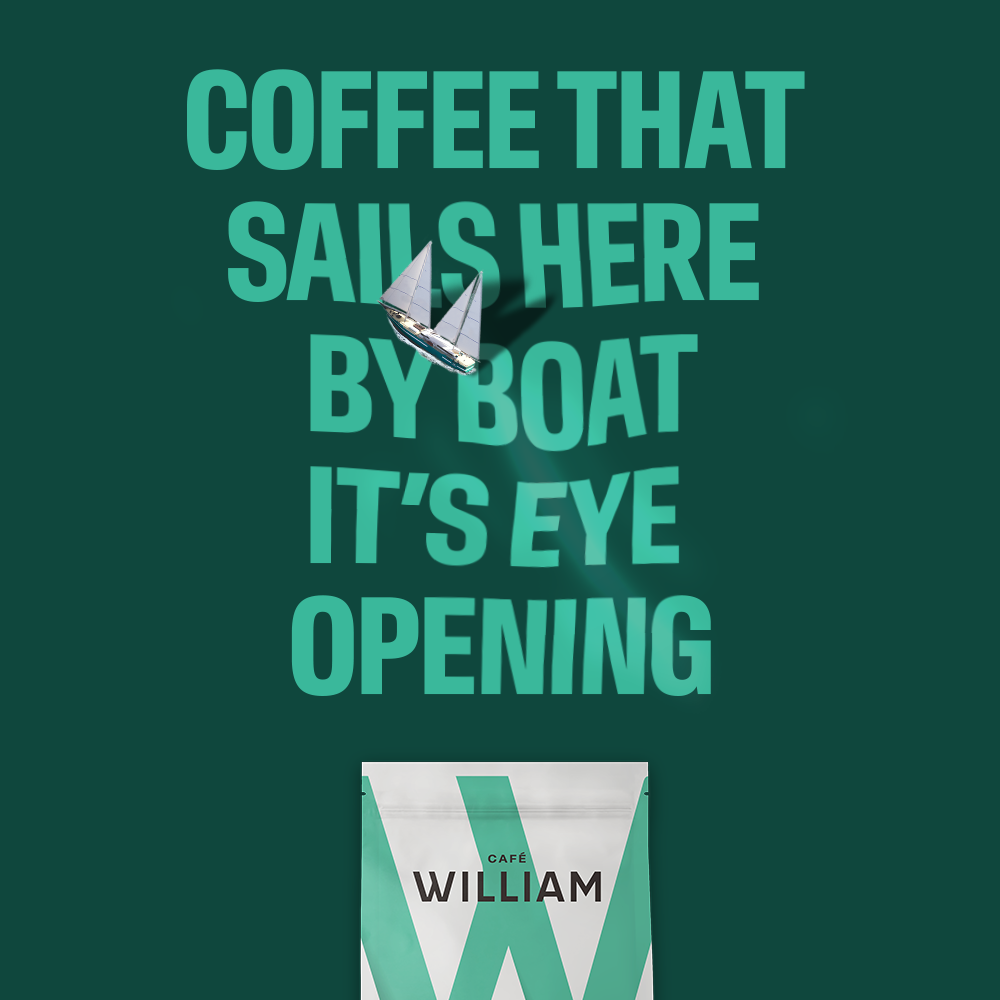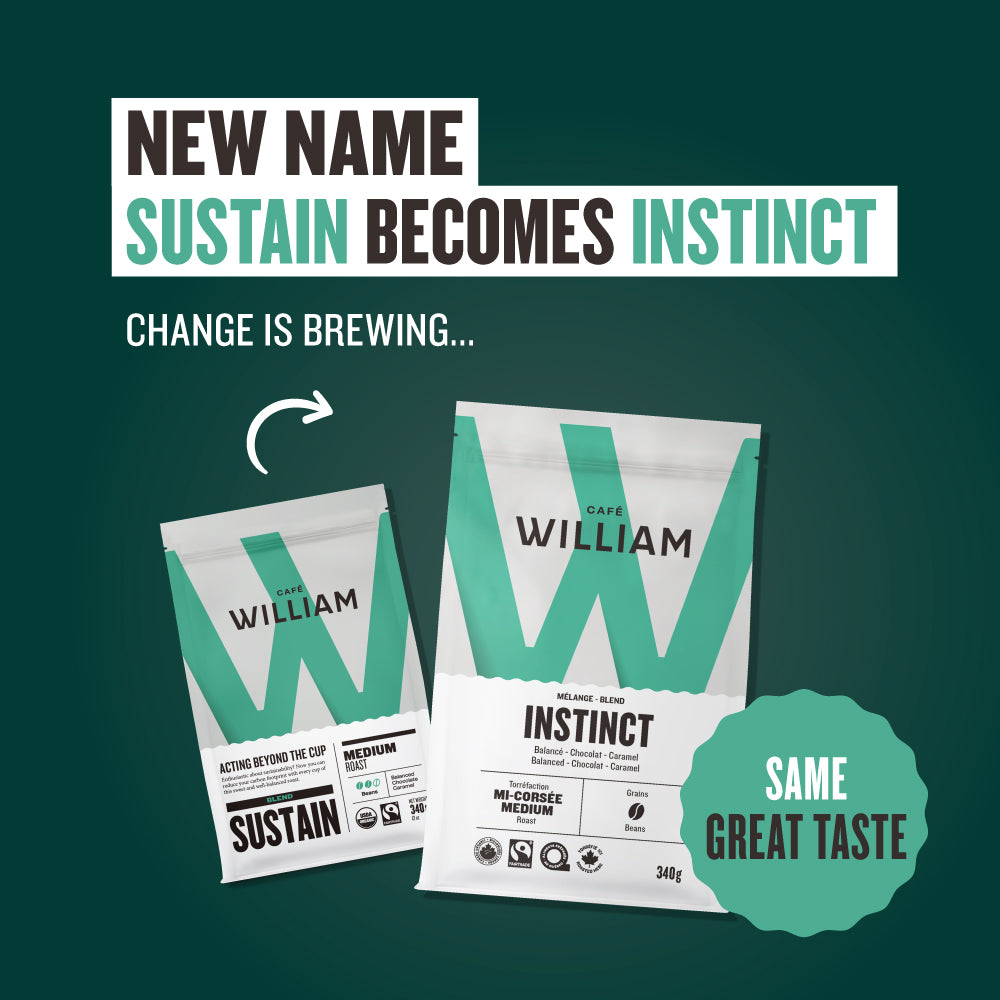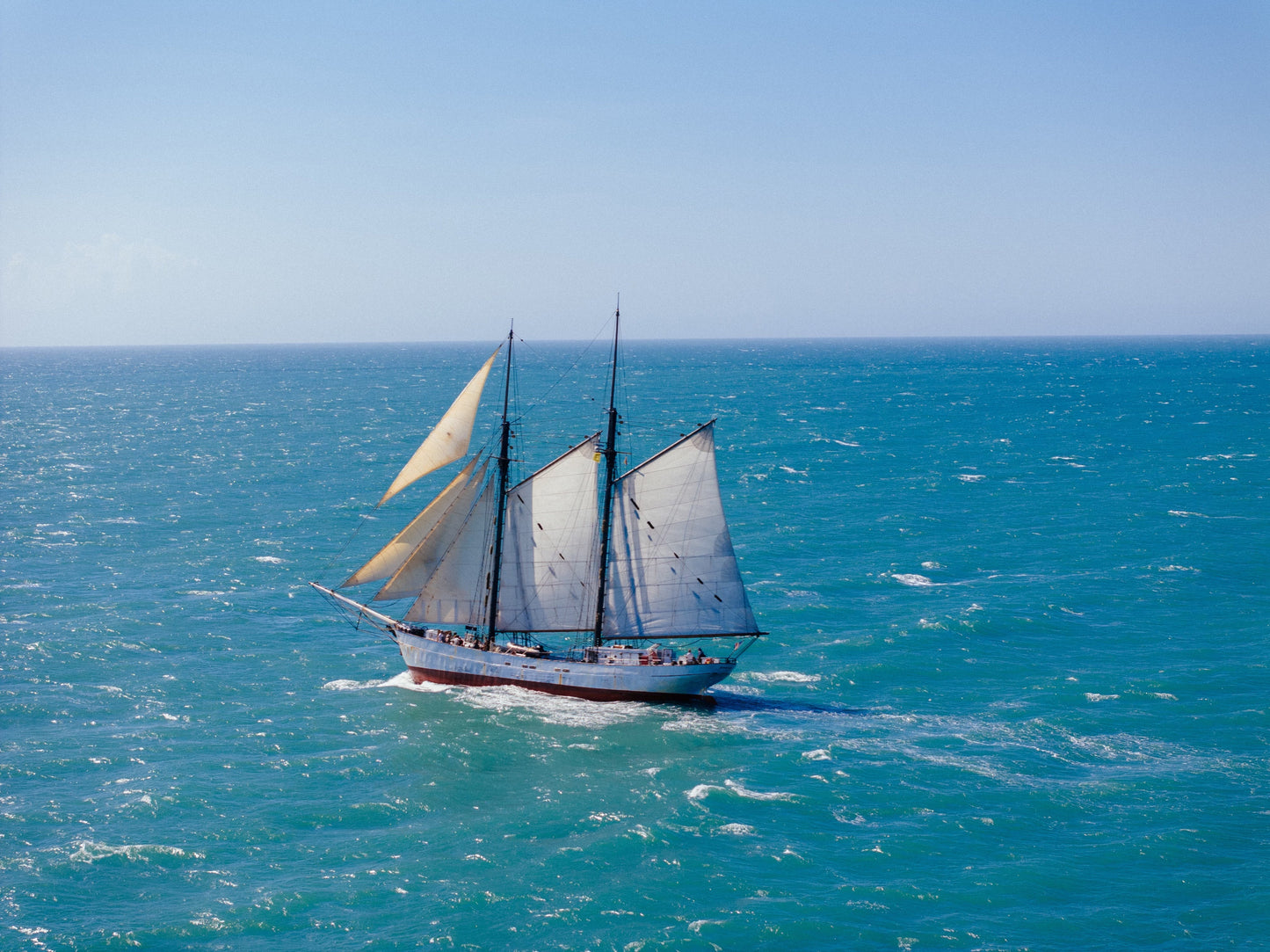
It all started with an idea. A big idea. A crazy idea? Perhaps. Our big idea is a cargo sailboat transporting our coffee from South America. Our ambition? To produce the most sustainable coffee in the world.
Trading Fossil Fuels for Wind
We have to face the facts; we can't do without maritime transport. Today, 80% of the world's 10 billion tons of goods travel by sea. So, eliminating cargo ships overnight would be quite challenging!
Currently, maritime transport accounts for more than 3% of total global greenhouse gas emissions (GHGs). While it may seem small, cargo ships are a significant source of pollution that we can quickly address. By maintaining the status quo, this percentage could double or even quadruple by 2050. It is crucial as a society to reduce the environmental impact of maritime transport to take another step toward reducing our dependence on fossil fuels.
The geographical location of Quebec means that we are thousands of kilometers away from coffee-producing countries. At Café William, an alternative maritime transport method was necessary.
That's why we decided to act and invest in clean maritime transport. Thanks to sailboats, we use the wind instead of fossil fuels to transport coffee. A true emerging industry, it is a major innovation in improving our value chain and reducing our dependence on fossil fuels. "For us, it is the cleanest mode of transportation available on the market, and we believe in it enough to invest," explains Serge Picard, owner of Café William.
This is a concrete step toward our goal of producing the most sustainable coffee possible. Coffee is consumed all over the world, so it is essential to consider how it is exported. It is, in fact, the second most consumed beverage in North America, after water. Coffee is part of our daily lives, but we must not forget the journey it must take before reaching us. "Since coffee trees do not grow in cold regions like ours, it is inevitable that it be transported over long distances," says Serge Picard. Unfortunately, its environmental, energy, and ecological impact is quite high."

When the opportunity arose to reduce the ecological footprint of transporting our coffee, we did not hesitate to jump on board... literally. Opting for a wind-powered maritime transport solution is no small feat, and after some logistical challenges, we can finally declare victory.
A First Zero-Emission Voyage
It was on December 15th, 2023, that the first sailboat carrying our coffee beans set sail. Our dream is finally coming true! This first sailboat carries 4 containers of green coffee beans in its hold, approximately 160,000 pounds of coffee.
This first wind-powered sea transport picked up its first load of organic and fair-trade green coffee in Santa Marta, Colombia. After loading the precious coffee from the ANEI cooperative, the boat continues its journey to North America. The journey is expected to last about a month. For this trip between the Americas, we estimate a reduction of approximately 50% in the number of tons of CO2 compared to our current cargo ships.

A New Era in Maritime Transport
Our ambition is to make the cargo sailboat a high-impact sustainable solution. We want to significantly increase the quantity of containers transported by sailboat each year to reach several million pounds of coffee shipped by sail every year.
Year after year, we hope to see this number increase to have a significant impact on our GHG emissions. Millions of pounds of coffee transported by the wind, that's our big idea. "We have been investing for several years to rethink and make the value chain sustainable, and this initiative is part of that commitment," adds Serge Picard. The goal of this initiative? To shake up the major players in the world of coffee. The best time to act for the environment is now.
Other coffees from South and Latin American countries are already on our radar for potential voyages to our roasting factory in Sherbrooke. As part of our six sustainable initiatives, the cargo sailboat will help us navigate smoothly toward our ambition to produce the most sustainable coffee in the world. Learn more about these major initiatives here and join this great adventure with us!
Sources :
Business Insider :
TRT World :
Windblown beans offer emissions-free coffee
Bloomberg :
Coffee Shipped by Sailboat Is a Whimsical Way to Lower Your Emissions
Yale Climate Connections :
Maritime shipping causes more greenhouse gases than airlines





